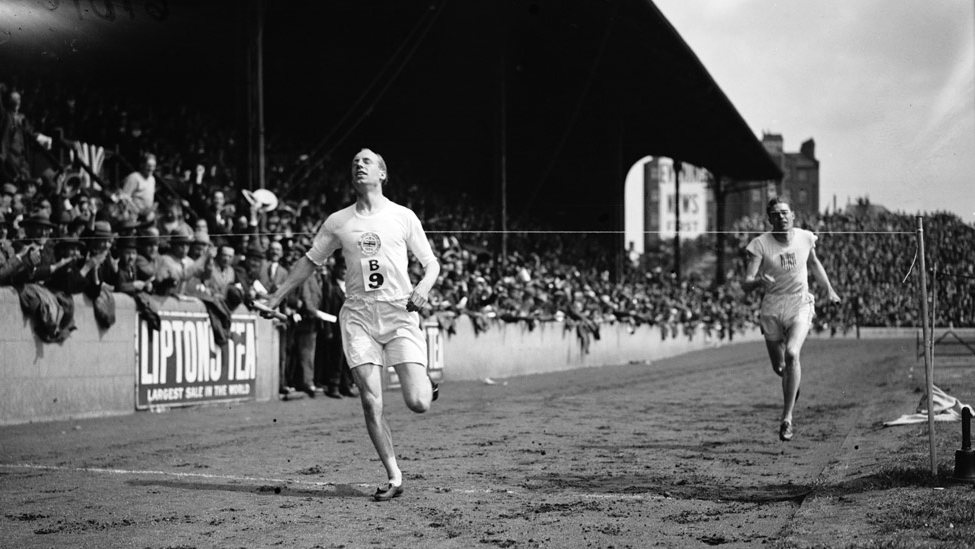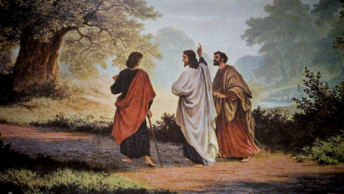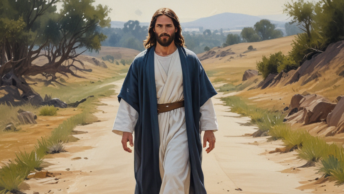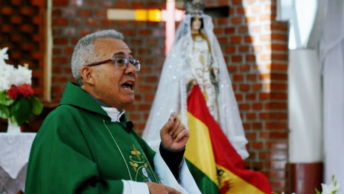Many people are looking forward to the 2016 summer Olympics, which will be held in Rio de Janeiro, Brazil, this August. One of the greatest stories in Olympic history occurred in Paris in 1924. A young man from Scotland named Eric Liddell was England’s fastest runner in the 100 meter dash, and the favorite to win the gold medal. However, a problem arose: the 100 meter dash was scheduled to be run on a Sunday, and Eric—as a devout Christian—decided he could not participate, as that would violate the commandment to keep holy the Sabbath. Once his decision became known, Eric came under intense pressure; many people, including the Prince of Wales, heir to the British throne, tried to get him to change his mind. When he refused, the English newspapers called him a traitor to his country. Eric stood firm, and then a solution was suggested: a teammate would run the 100 meter dash in his place, while he instead competed in the 400 meter race, which was scheduled on a different day. The English coach agreed, even though Eric had never run a 400 meter race before in his life, and would be a heavy underdog in the race. As it turned out, both Eric and his teammate won gold medals in their events.
Eventually, Eric Liddell and his wife became missionaries in China. When World War II broke out, Eric sent his wife and children to safety in Canada, shortly before he was arrested by the Japanese and sent to a harsh prison camp. He ministered to the other prisoners and, through his inspiration and support, helped them survive the war. Eric himself, however, died a heroic death just a few months before the camp was liberated. Many years later it was suggested that a movie be made about his life. Eric’s widow, who was still living in Toronto, said, “Who’d be interested in an event so long ago about a man who wouldn’t run on Sundays because of his Christian beliefs?” As it turned out, millions of people were very interested, and in 1981 the resulting movie, Chariots of Fire, became a box office hit, and went on to win four Academy Awards (Mark Link, Illustrated Sunday Homilies, Series I, Year C, p. 77). The story of Eric Liddell illustrates an important message: truly following Christ means putting Him first in our lives.
Answering God’s call must take priority over everything else. In the Gospel of Luke (9:51-62), three different people encountered Jesus; they wanted to follow Him, but weren’t yet ready to make a complete commitment. As far as Jesus was concerned, however, nothing less would do; that’s why He said, “No one who sets a hand to the plow [but] keeps looking to what was left behind is fit for the Kingdom of God.” Our Lord is seeking the sort of response made by Elisha (1 Kings 19:16, 19-21): an ability to set aside everything else in order to do God’s will. Oxen and plowing equipment were extremely valuable and hard to replace, but Elisha completely disposed of them without hesitation, making it impossible for himself to later change his mind and go back to farming. This sort of wholehearted commitment isn’t easy, nor is it a one-time decision—and sometimes after a good start we may stumble or falter. This happened to two of the disciples in the Gospel. Even though Jesus had always preached peace and mercy and forgiveness, James and John wanted Him to call down fire from Heaven and destroy an inhospitable Samaritan village. In his Letter to the Galatians (5:1, 13-18), St. Paul addressed a similar situation. Some of his converts in Galatia began second-guessing his teaching, and wondered if perhaps they’d have to follow all the Jewish religious rules after all, in spite of what Paul had taught them. Because they lost sight of the Gospel, Paul corrected them by writing, “For freedom Christ set us free, so stand firm and do not submit again to the yoke of slavery”—in other words, don’t let anything distract you from following Jesus.
At the 1972 summer Olympics in Munich, Germany, Cathy Rigby was a member of the U.S. Women’s Gymnastic Team. Her goal was to win a gold medal, and she trained very hard, and in the competition performed extremely well—but when the winners were announced, her name was not among them. In tears, she apologized to her coach, her teammates, and her parents, saying, “I’m sorry; I did my best.” Her mother consoled her, telling her, “You know that, and I know that, and I’m sure God knows that, too.” Then her mother added something Cathy never forgot: “Doing your best is more important than being the best” (homily notebook, “Commitment”).
Jesus doesn’t expect us always to succeed, but He does ask us always to try to do our best—especially when it comes to following Him and fulfilling our mission in life. This message is just as important today as it’s ever been—perhaps even more important than before, because today we have so many distractions and diversions, and because the world around us aggressively promotes its values and beliefs, while subtly and sometimes even blatantly attempting to undermine or discredit our own. Going along with the world, and merely trying to squeeze religion in when there’s leftover space in our lives, doesn’t work; “part-time” Christianity is ultimately worthless. Faith has to make a difference in how we live our lives; if it doesn’t, it’s a waste of time. Truly following Jesus means trying to love everyone, without exception, and forgiving those who wrong us, even when they may not seem to deserve our forgiveness. Being Jesus’ disciples means trying to overcome our bad habits and sins, and seeking to grow in virtue and grace. Living as Christians means seeking God’s guidance in all we do, and spending time with Him each day, whether through prayer or meditation or reading the Bible.
In the movie Chariots of Fire, Eric Liddell stated that his ability to run was a gift from God, and that he wanted to use this gift for God’s glory—something he ended up doing with true integrity and commitment. Everything we have is a gift from God—especially our faith and our ability to live as Christians. We too must live for God’s glory, and this means following Jesus without counting the cost, and without turning back.








